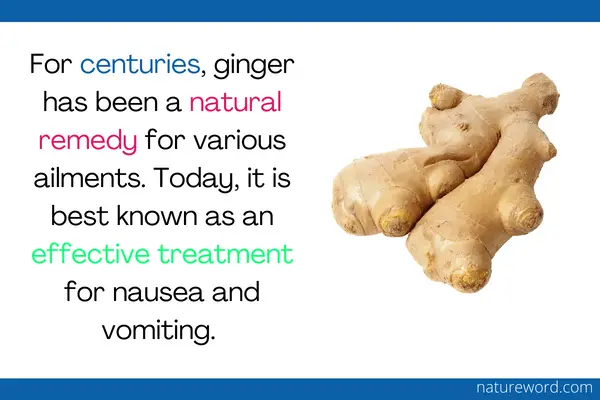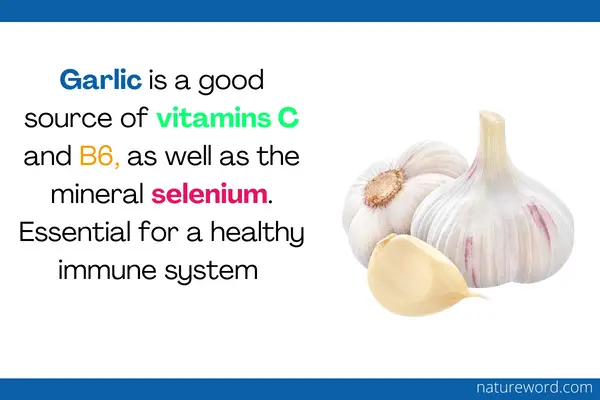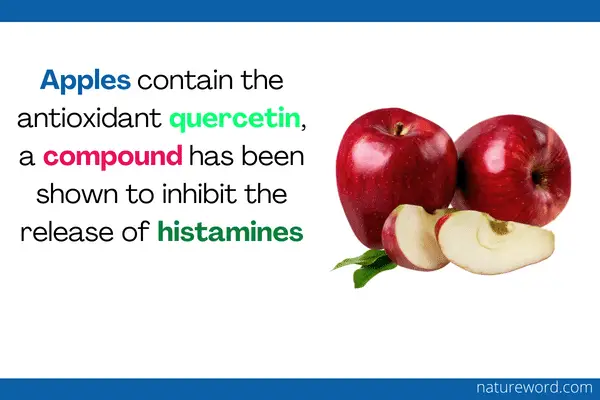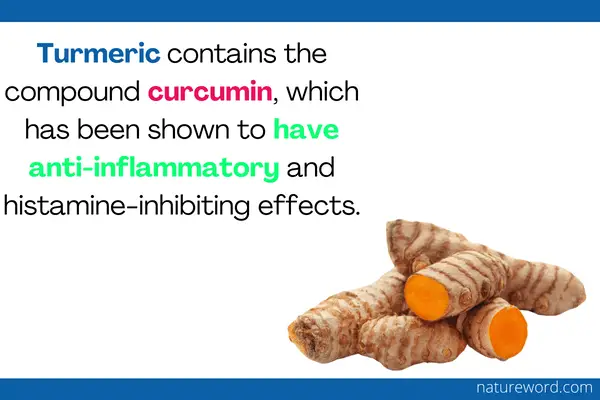If you suffer from allergies, you know they can make everyday activities challenging. But did you know that certain foods can help alleviate some symptoms? In this article, we’ll talk about 15 foods that can help with allergies.
What Are Allergies and How Does Your Diet Affect Them?
Allergies are a reaction of the immune system to a foreign substance, such as pollen or pet dander, that does not cause a reaction in most people. The body views these substances as threats and produces antibodies to fight them off. These antibodies release chemicals, such as histamine, which cause the symptoms of an allergic reaction.
The most common symptoms include runny nose, sneezing, itchy eyes, and coughing. In severe cases, anaphylaxis can occur, a potentially life-threatening reaction that can cause difficulty breathing and low blood pressure.
You can do several things to manage your allergies and lessen your symptoms:
- One is to avoid trigger substances, if possible.
- Another is to take over-the-counter or prescription medications to relieve symptoms.
- You can also try immunotherapy, which involves gradually exposing your body to increasing amounts of the trigger substance to build tolerance.
- Finally, paying attention to your diet can also be helpful.
Some foods contain histamine and can make allergy symptoms worse. Other foods contain compounds that help to inhibit histamine production or have anti-inflammatory effects that can help to reduce swelling and irritation. Knowing which foods to eat (and which to avoid) can be a helpful tool in managing your allergies.
15 Foods That Help Prevent Allergies
Several different foods can help with allergies. Here are 15 foods to eat if you are suffering from allergies:
#1 Bananas
Bananas are a nutritional powerhouse, packing vitamins C and B6 and the antioxidant quercetin. Quercetin has been shown to inhibit the release of histamine, making bananas an excellent choice for those with allergies.
Bananas are also a good source of dietary fiber, which can help to regulate digestion. In addition, the potassium in bananas can help to lower blood pressure and reduce the risk of heart disease.
With so many health benefits, it’s no wonder that bananas are one of the world’s most popular fruits.
#2 Ginger

For centuries, ginger has been a natural remedy for various ailments. Today, it is best known as an effective treatment for nausea and vomiting. However, ginger can also be helpful in treating people with allergies.
The anti-inflammatory properties of ginger can help to reduce tissue swelling, while the histamine-inhibiting compounds can prevent the release of histamines, which are responsible for many allergy symptoms.
Additionally, ginger is thought to boost the immune system, making it less likely that someone will have a reaction in the first place. For these reasons, many people with allergies keep ginger on hand as a safe and effective way to relieve their symptoms.
#3 Honey
Honey has been used as a natural remedy for centuries. It is thought to be helpful for allergies because it contains pollen. When you eat honey, your body is exposed to small amounts of pollen, which can help build tolerance and reduce your symptoms.
Some research has shown that honey may be more effective than over-the-counter medications in treating allergies. However, it is essential to note that not all types of honey are equally effective. To get the most benefit, you should look for raw, unpasteurized honey from local beekeepers. It would help if you also started with a small amount and gradually increased your intake over time.
#4 Green Tea
Green tea is rich in antioxidants, including catechins and flavonoids. These compounds have been shown to have anti-inflammatory and histamine-inhibiting effects. Additionally, green tea is thought to boost the immune system and help the body fight off infection.
#5 Broccoli
Broccoli is a nutrient-rich vegetable containing vitamins C and E and the antioxidants quercetin and kaempferol. These compounds have been shown to inhibit the release of histamines, making broccoli a good choice for those with allergies.
Broccoli is also a good source of dietary fiber, which can help to regulate digestion. Additionally, the sulforaphane in broccoli is thought to boost the immune system and protect against environmental toxins.
#6 Garlic

Garlic has been used to treat allergies for centuries. It is thought to be effective for allergies because it contains the compound allicin, which has been shown to inhibit the release of histamines.
Additionally, garlic is a good source of vitamins C and B6, as well as the mineral selenium. These nutrients are essential for a healthy immune system.
#7 Onions
Onions are a member of the garlic family and share many of the same health benefits. Like garlic, onions contain the compound allicin, which has been shown to inhibit histamine release.
Like garlic, onions are also a good source of vitamins C and B6, as well as the mineral selenium. For these reasons, onions can be a helpful addition to the diet of those with allergies.
#8 Cauliflower
Cauliflower, much like broccoli, is a nutrient-rich vegetable that contains vitamins C, K, and B6, as well as the minerals manganese and phosphorus. These nutrients are essential for a healthy immune system.
Additionally, cauliflower contains the antioxidant compounds quercetin and kaempferol. These compounds have been shown to inhibit the release of histamines, making cauliflower a good choice for those with allergies.
#9 Apples

Apples are a good source of vitamins C and A, as well as the minerals potassium and magnesium. These nutrients are essential for a healthy immune system.
Additionally, apples contain the antioxidant quercetin.
This compound has been shown to inhibit the release of histamines, making apples a good choice for those with allergies.
#10 Citrus Fruits
Citrus fruits, such as oranges, grapefruits, and lemons, are a good source of vitamin C. This nutrient is essential for a healthy immune system.
Additionally, citrus fruits contain the antioxidant hesperidin. This compound has been shown to inhibit the release of histamines, making citrus fruits a good choice for those with allergies.
#11 Tomatoes
Tomatoes are a good source of vitamins C and A, as well as the mineral potassium. These nutrients are essential for a healthy immune system.
Additionally, tomatoes contain the antioxidant lycopene. This compound has been shown to inhibit the release of histamines, making tomatoes a good choice for those with allergies.
#12 Turmeric

Turmeric is a spice used for centuries in traditional Chinese and Indian medicine.
Turmeric contains the compound curcumin, which has been shown to have anti-inflammatory and histamine-inhibiting effects.
Additionally, turmeric is thought to boost the immune system and help the body fight off infection.
#13 Peas
Peas are a good source of vitamins C and A, as well as the mineral potassium. These nutrients are essential for a healthy immune system.
Additionally, peas also contain the antioxidant quercetin. This compound has been shown to inhibit the release of histamines, making peas a good choice for those with allergies.
#14 Spinach
Spinach is a leafy green vegetable that is rich in vitamins and minerals. It also contains antioxidant properties that can help to protect the body against free radicals. Additionally, spinach is another good source of quercetin.
#15 Salmon
Salmon is a type of fish that is rich in omega-3 fatty acids. These healthy fats can help to reduce inflammation throughout the body. Additionally, salmon contains astaxanthin, a powerful antioxidant that has been shown to inhibit the release of histamines.
For these reasons, salmon can be a helpful addition to the diet of those with allergies.
Foods to Avoid When Suffering with Allergies
One of the most challenging things about suffering from allergies is learning which foods to avoid. This can be especially tricky, as even seemingly innocuous ingredients can trigger a reaction. However, some common allergens are found in a variety of foods.
For example, many people are allergic to gluten, a protein found in wheat, barley, and rye. Others may have trouble with dairy products due to the presence of lactose.
Additionally, many people suffer from nut allergies, making it hard to find safe snacks. Of course, this is just a small sampling of potential allergens; everyone’s experience is unique.
Working closely with a doctor or allergist is vital to determine which foods should be avoided. With careful planning and a bit of trial and error, it is possible to find an allergy-friendly diet that works for you.
Other Remedies for Allergies
Many prescription medications and over-the-counter allergy remedies are available to help alleviate symptoms. One of the most popular allergy remedies is antihistamines. These medications block the histamine reaction that occurs when someone comes into contact with an allergen.
Antihistamines are available in pill and liquid form and can be taken orally or nasally. Many people find that antihistamines provide quick relief from their allergy symptoms.
Another popular over-the-counter remedy is a nasal spray. Nasal spray works by flushing out the allergens accumulated in the nasal passages. This can help to relieve congestion and make breathing easier.
There are a variety of nasal sprays available, and it is vital to choose one specifically designed for allergies. With so many options available, there is no longer reason to suffer from allergies.
To Close
Although allergies can be frustrating and uncomfortable, there are foods to help lessen their effects. You can feel better and stay healthy by eating the right foods and avoiding those that trigger your allergies. If you are looking for other remedies for your allergies, speak to a doctor about all of your options.

